
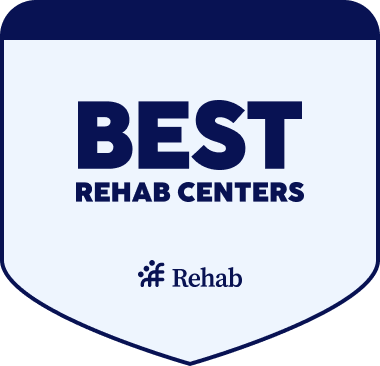
Alcohol and Drug Rehab for Women
Explore how top-rated women’s rehab centers provide safe, supportive treatment that understands the unique emotional, physical, and social challenges women face in recovery. Learn what to look for in a women-focused program, from trauma informed care to parenting support, so you can choose the path that feels right for you or your loved one.
Best Women's Drug Rehab Centers
| Name / Address / Rating | Description | Treatments / Payments / Programs | Review / Contact | Images |
|---|---|---|---|---|
Cave Creek, AZ 1
Top 10 in Program For Women
Rehab Score
Our Rehab Score is designed to make it easier for you to find the best treatment centers. We combine overall ratings with recent feedback to create a score that reflects a center’s quality right now.
8.90 / 10 | Soberman’s Estate, located in Cave Creek, Arizona, is an alcohol and drug rehab center that provides addiction treatment services to adult men, professionals, and public figures. They are a discrete, luxury rehab for individuals aged 30 to 80 years old. This location caps their treatment center at ten men at a time. As one of leading inpatient re | Treatments Programs Payment Options | Soberman’s Estate was everything I needed for my recovery. The staff, the program, physical activity and culinary experience were top notch and essential. The program is well designed and worked better than I expected. The staff is remarkable – professional, considerate and genuinely caring. My time there and being removed from alcohol for five weeks was everything I needed to remove my craving for alcohol. Soberman has changed my life in ways I never could have imagined. I feel confident, secure and grateful for my new life. I have reconnected with my family and friends. Thank you Soberman.
George B.
3 months ago
Yes, very professional staff, treatment, therapist, chefs were good! even the home cook did the best she could, and loved the horses of Course! Saturday morning hiking was fun to explore the trails of the nearby mountain area!
John E Williams
4 months ago
I had a great experience overall and would recommend it to anyone wanted to jump start their sobriety!!
Kevin Crawford
4 months ago
| 
5 5 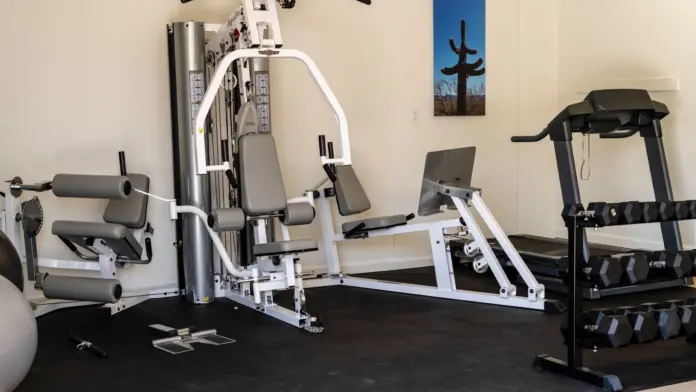



|
Clarksville, IN 2
Top 10 in Program For Women
Rehab Score
Our Rehab Score is designed to make it easier for you to find the best treatment centers. We combine overall ratings with recent feedback to create a score that reflects a center’s quality right now.
8.81 / 10 | Avenues Recovery Center in Clarksville, Indiana, is an inpatient drug and alcohol detox and rehab center. They strive to provide individuals receiving treatment with a loving environment and attentive medical care. You’ll be away from toxic environments and triggers and have the opportunity to focus on developing life skills that will support you | Treatments Programs Payment Options | I highly recommend Avenues. The staff is absolutely amazing and very helpful. They treat you like family. Star, Jenny, Tarah, Paige, Monica, and both Amanda’s really helped me through.
Dana Key
3 weeks ago
It was a great experience great people thank you .
Jessica Fulkerson
3 weeks ago
This facility has been life saving. I am so grateful to be able to have gotten the help they had offered.
Nikki
3 weeks ago
| 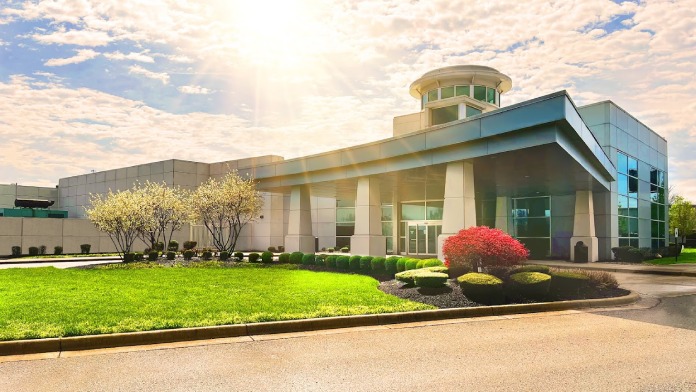
4 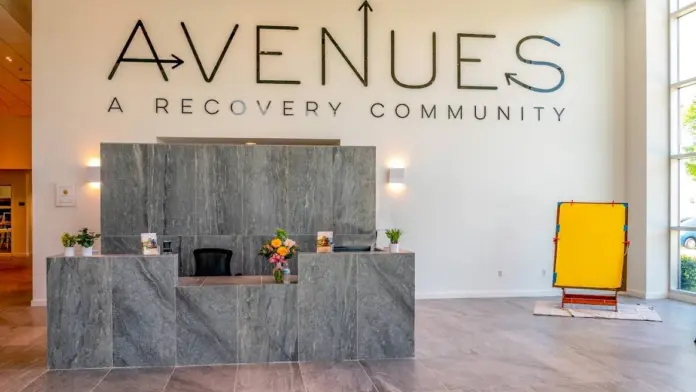
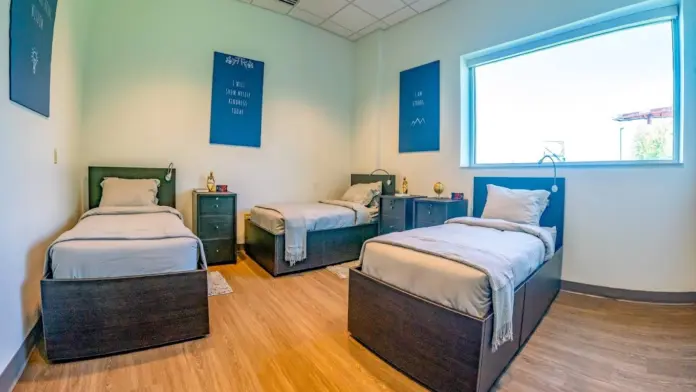
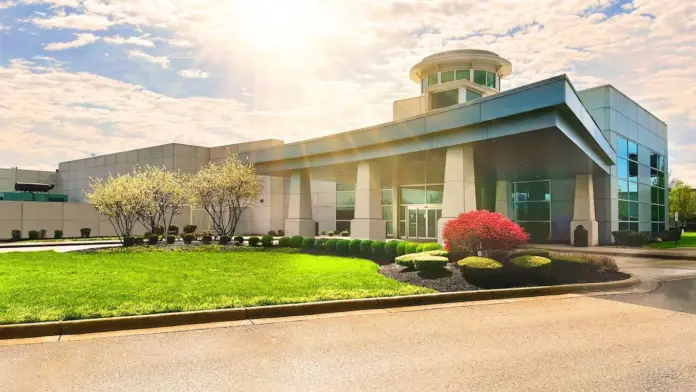
|
Simi Valley, CA 3
Top 10 in Program For Women
Rehab Score
Our Rehab Score is designed to make it easier for you to find the best treatment centers. We combine overall ratings with recent feedback to create a score that reflects a center’s quality right now.
8.81 / 10 | All In Solutions Detox in Simi Valley is one of the best ranked inpatient detox facilities in California providing safe, medically supervised care for individuals beginning their recovery from drug or alcohol addiction. As part of the All In Solutions Behavioral Health network, this facility serves as the first step in a full continuum of care. Cli | Treatments Programs Payment Options | I had an amazing experience and really enjoyed getting to know the staff and my fellow peers in groups. The staff really cares about your recovery and you will feel better every day. The food is good too lol.
Desiree
1 week ago
I loved it here it was a great place to be would definitely recommend to anyone wanting to get sober thank yall!
Kyle Robinson
1 week ago
i owe it all to this place. 100% recommend if you’re serious about your recovery. thanks AIS ❤️
maddy chacos
1 week ago
| 
5 5 

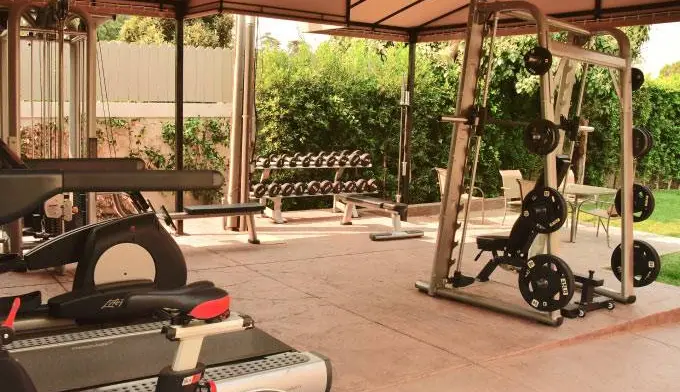

|
Hurst, TX 4
Top 10 in Program For Women
Rehab Score
Our Rehab Score is designed to make it easier for you to find the best treatment centers. We combine overall ratings with recent feedback to create a score that reflects a center’s quality right now.
8.80 / 10 | Symetria – Hurst Outpatient Rehab and Suboxone Clinic in Hurst, Texas, is a private drug rehabilitation clinic for adults. One of the best outpatient rehab centers in Texas, Symetria offers various withdrawal medications to help clients get started with their recovery journey. You’ll also have access to treatments such as the intensive outp | Treatments Programs Payment Options | Symetria is unbelievably amazing!!! The Hurst staff is phenomenal!!! I can’t imagine that another location has a better staff. A special shout out to Deborah, Benjamin, and Samantha of course. You all are doing amazing, amazing, selfless work. You all are very special to so many!!!
Vernon Godsey III
3 months ago
Huge shout out to the team at symetria who make me feel like family I appreciate everything they do and huge shout out to Osagie for helping me! He is AWESOME!!! I love you symetria❤️❤️❤️
Chloe Roseman
4 months ago
BEST PLACE EVER. I have tried various other doctors/clinics and none of them even begin to compare to this one. The staff here is absolutely amazing. I can’t even make a single complaint. Dr Son is the best as well. He explains everything and you truly feel like he understands you. I can proudly say this, this place saved my life. If you or someone you know needs help getting off opiates do it right the first time and come here. You won’t be disappointed. If you are specifically struggling with fentanyl please don’t waste your time with other ways. I have tried 6 other methods from lazer therapy to having the earpiece to suboxone. Methadone is the key to our current fentanyl crisis. This clinic makes recovery possible again!
Mason
4 months ago
| 
5 5 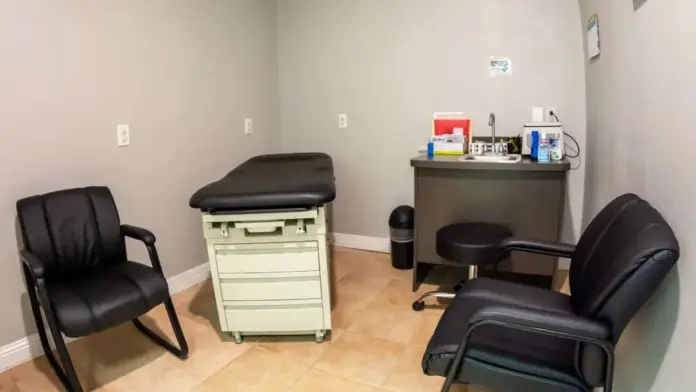
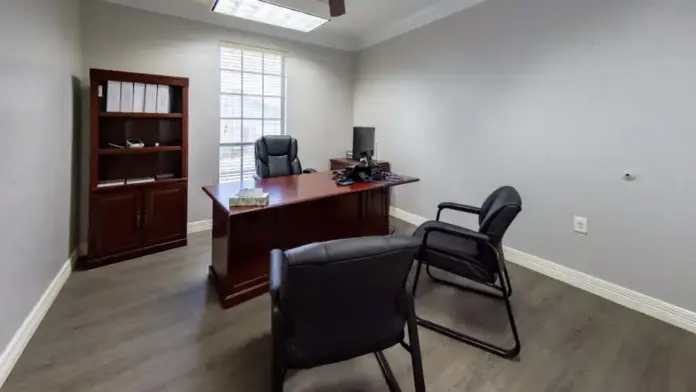
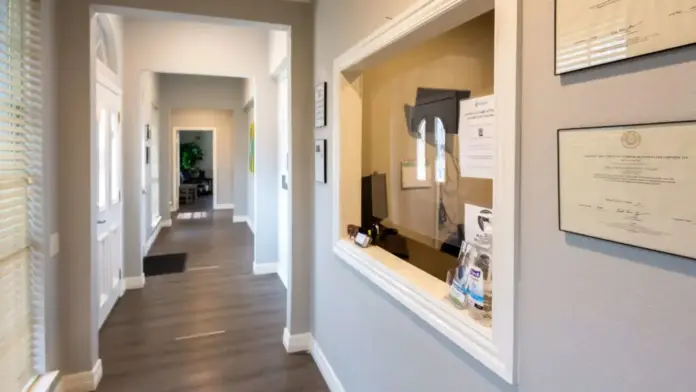
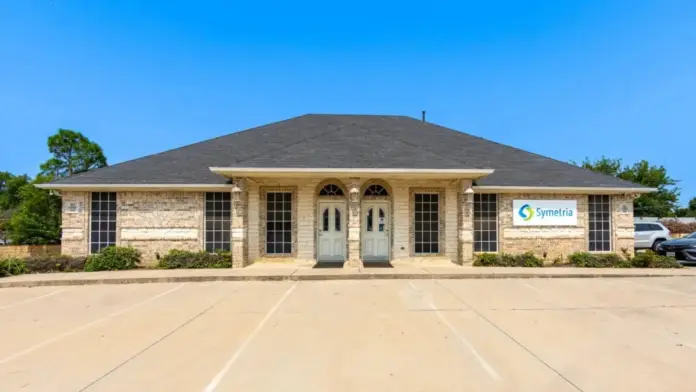
|
Boynton Beach, FL 5
Top 10 in Program For Women
Rehab Score
Our Rehab Score is designed to make it easier for you to find the best treatment centers. We combine overall ratings with recent feedback to create a score that reflects a center’s quality right now.
8.80 / 10 | All In Solutions Counseling Center is a mental health center and addiction treatment program in Boynton Beach, Florida. They provide a partial hospitalization program, an intensive outpatient program (IOP), an outpatient program, medication-assisted treatment, and mental health care for adults with substance use disorder. All In Solutions Counseli | Treatments Programs Payment Options | The staff were amazing. Can really tell the people care about you. Amazing people who have lived through the experience and recovery they are trying to show all of us. Can’t recommend it enough.
Tyler
1 week ago
such a good facility. love all the staff! nicole is an awesome therapist!
Sydney Shaw
1 week ago
All In Solutions received me with open arms for the second time. The staff make sure you receive a high quality care treatment. I’m grateful for the love and care . God continue to bless everyone.Thank you for you do .
Jianil Richiez
3 weeks ago
| 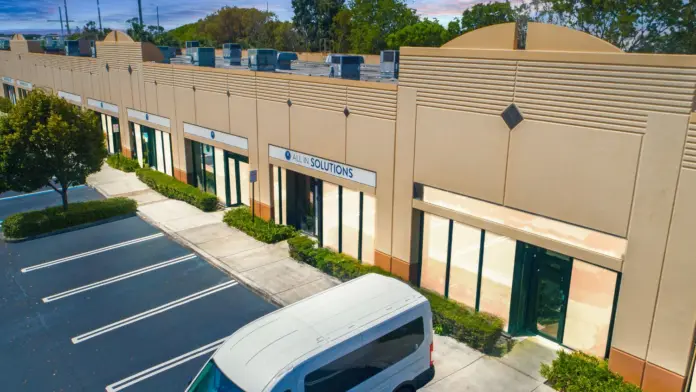
4 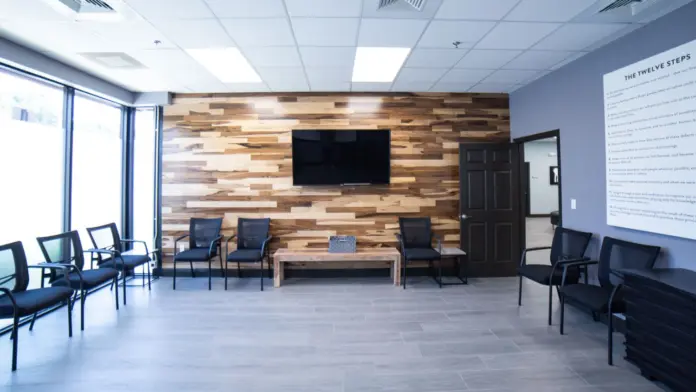
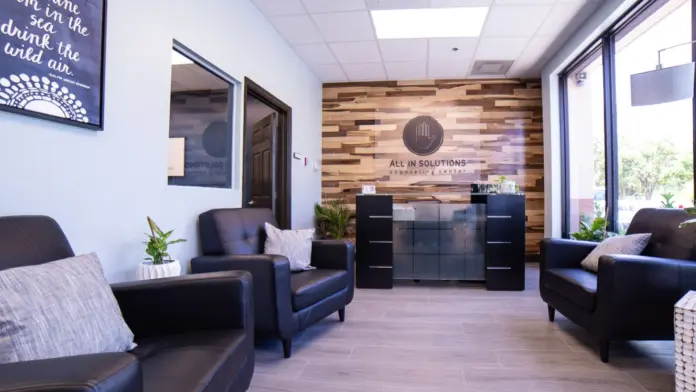
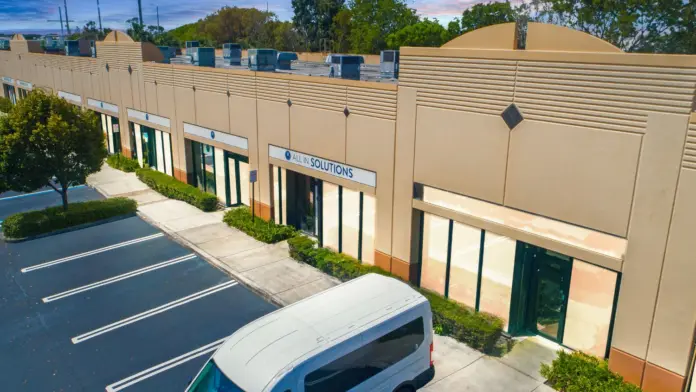
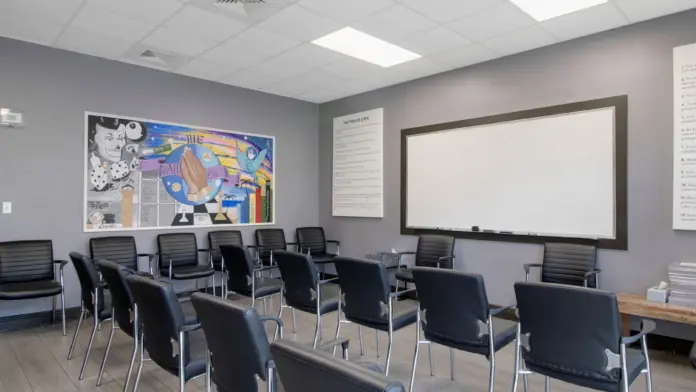
|
Galloway, NJ 6
Top 10 in Program For Women
Rehab Score
Our Rehab Score is designed to make it easier for you to find the best treatment centers. We combine overall ratings with recent feedback to create a score that reflects a center’s quality right now.
8.80 / 10 | Boca Recovery Center – Galloway is a drug and alcohol rehab in Galloway, NJ. They provide inpatient addiction treatment and medical detox. Boca Recovery’s New Jersey Drug & Alcohol Rehab, located in Galloway, New Jersey offers residential addiction treatment, medical detox, and medication-assisted treatment in an immersive treatment s | Treatments Programs Payment Options | My sobriety journey started at Boca. The staff members including Miss Tracey, Hannah and Kevin their alumni coordinator have completely flipped the trajectory of my life. I was immediately taken in with open caring arms and they made my detox process as comfortable as possible. During my stay, Joe was extremely helpful in helping me slowly gain my appetite back and start to feel stronger and was so attentive to my nutritional health. Nurse Patrick was so kind to me during my intake and Kevin still reaches out to me very often to check in and is so helpful in my recovery process. I owe gaining my life, my strength and my family back to Boca and I am eternally grateful❤️
Rianna Dean
1 month ago
Great facility with even greater staff. One of the best rehab/detox in South, NJ.
Donna Kratzer
1 month ago
Very comfortable stay
Will
1 month ago
| 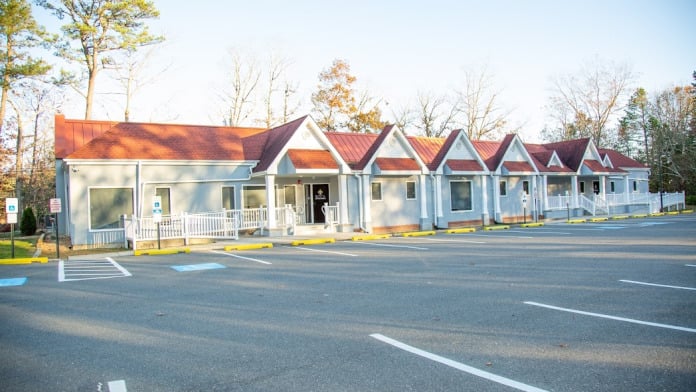
7 7 
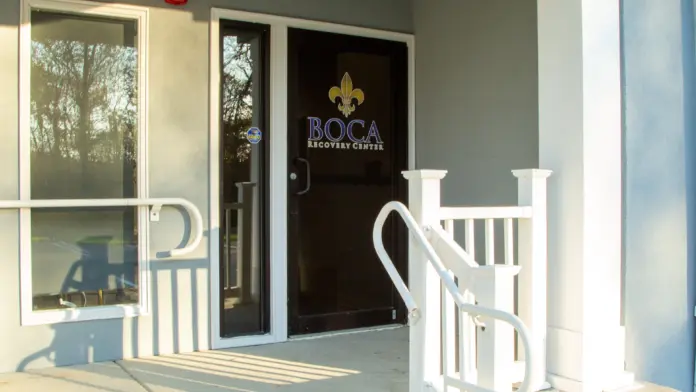
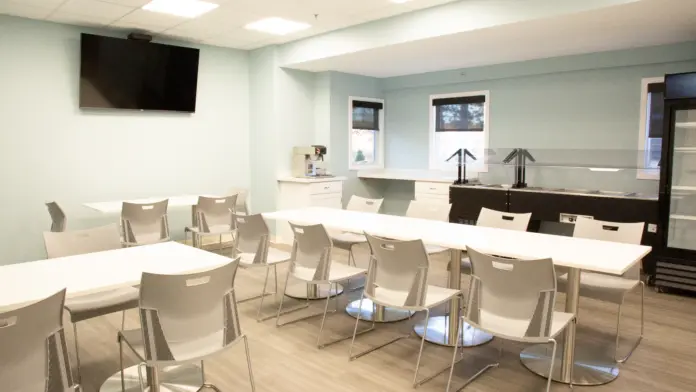
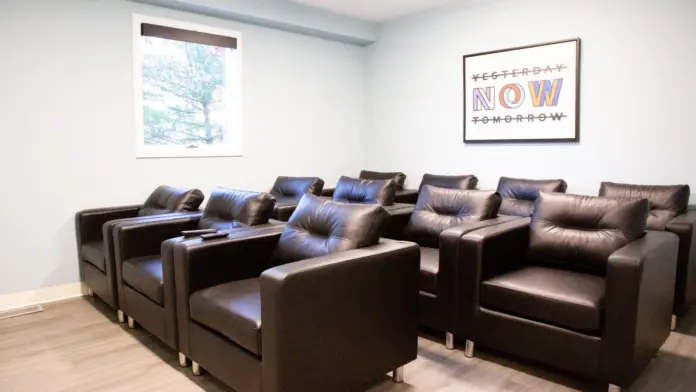
|
Bloomington, IN 7
Top 10 in Program For Women
Rehab Score
Our Rehab Score is designed to make it easier for you to find the best treatment centers. We combine overall ratings with recent feedback to create a score that reflects a center’s quality right now.
8.78 / 10 | The Boca Recovery Center is a luxury alcohol and drug rehab center for adults in Bloomington, Indiana. They specialize in cutting edge addiction treatment provided in a residential setting. One unique part of this alcohol and drug rehab in Indiana is the peaceful, secluded setting. If recovering in a clinical hospital setting doesn’t sound very a | Treatments Programs Payment Options | This place damn near saved my life. Staff is amazing and care almost on a personal level. Nurses are knowledgeable and groups are interactive informative and inclusive.
Edit*
Shout out to Beth, Nora and Carter! Made a great impact on my recovery!
V Montez
1 week ago
I learned a lot from this place. They’re really good at bringing everything out that you need to say in under to recovery. Thanks for everything. You guys have changed my life
Megan Tipton
2 weeks ago
Boca recovery was a magical experience during a very difficult time that will always hold a special place in my heart. From top to bottom, the support of staff is second to none.
Tyler and Carrie, Carter, Alexx, Ashley, Brooke, Michelle, Meagan, and the rest of the techs are phenomenal. My therapist January opened my eyes to perspectives I had been missing my entire life and Justin the case manager worked tirelessly from the start all the way until his wife gave birth on my last day to make sure I was set up for success.
The nurses are amazing and the medical attention someone needs during this portion of their recovery is 110% offered around the clock.
The place has everything you need from a gym to recreational activities, spacious beds with luxury amenities. And one cannot go without mentioning the chef, Tim. You won’t find better “rehab food” and conversation.
I owe a thank you to the director John for his efforts to get me into a great program after my stay was over.
To anyone struggling with with mental health and/or addiction, I cannot shout praises loud enough for what this program has to offer each and every client that walks through those doors.
If you want a way out, there’s no better place to check in.
Alex K
1 month ago
| 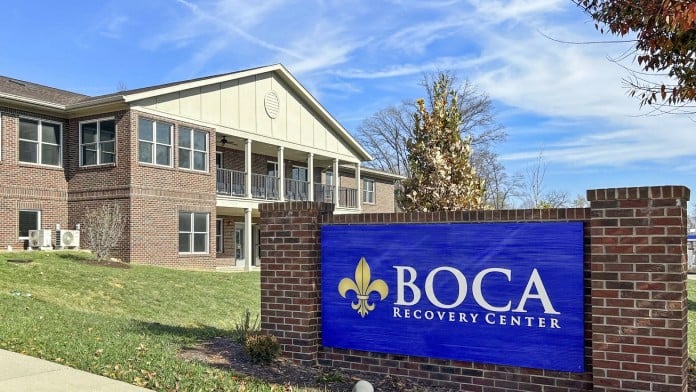
6 6 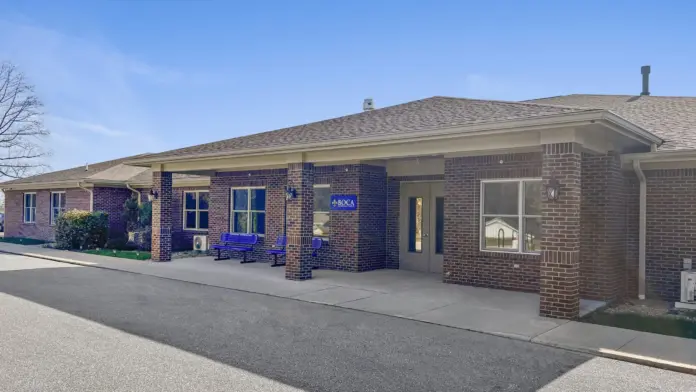
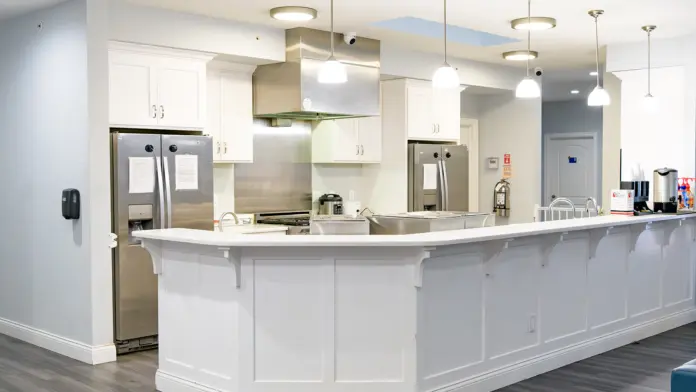
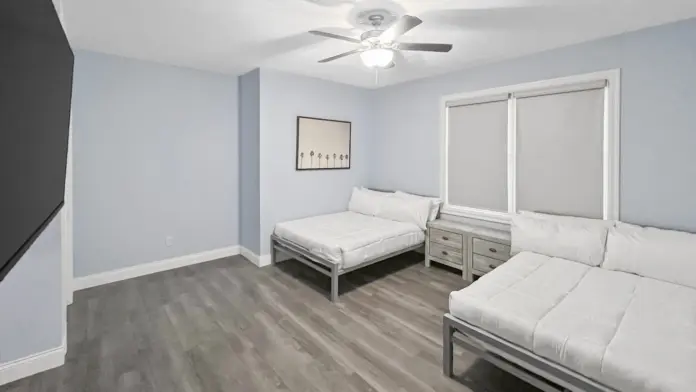
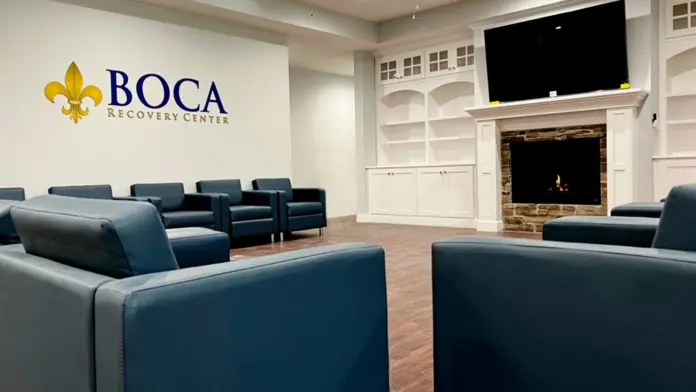
|
Woodbury, TN 8
Top 10 in Program For Women
Rehab Score
Our Rehab Score is designed to make it easier for you to find the best treatment centers. We combine overall ratings with recent feedback to create a score that reflects a center’s quality right now.
8.77 / 10 | If you’re looking for a Christian-based men’s drug rehab center, S2L Recovery in Woodbury, Tennessee, might be the place for you or your loved one. Located at the top of Short Mountain, and overlooking the green hills of Middle Tennessee, this residential and detox clinic boasts a one-to-one staff/patient ratio so there’ll always be someone t | Treatments Programs Payment Options | Coming from Canada, I was hesitant. But God knew that S2L was exactly where I needed to be. At 64 years of age, I was able to discover my true identity, purpose, and mission in Christ. They help you in trying to get clean and sober for sure. But what S2L and the staff are all about is the Gospel of Jesus Christ. That’s why it is so successful.
TIM TANNER
4 months ago
I’ve had the privilege of seeing the life-changing impact this ministry has on countless men & I can’t recommend it highly enough! God has His Hand on this ministry & I’m honored to see the Lord work in these men!
Hunter Stanfield
4 months ago
Come here with a open mind and heart. It can and WILL change your life in all ways. Trust the process and trust God! Could go on and on about how amazing this place, I’ll forever be grateful!
Trevor Woodard
4 months ago
| 
6 6 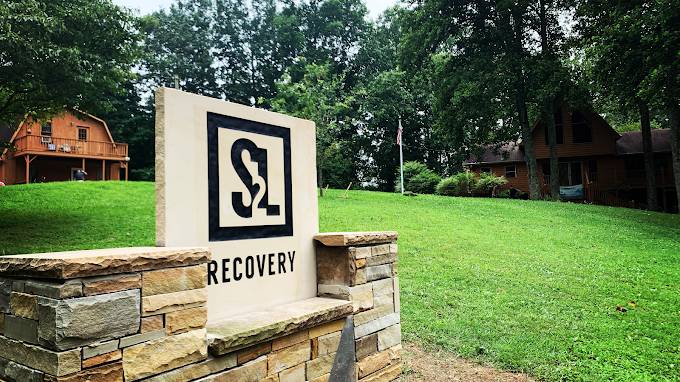



|
Levittown, PA 9
Top 10 in Program For Women
Rehab Score
Our Rehab Score is designed to make it easier for you to find the best treatment centers. We combine overall ratings with recent feedback to create a score that reflects a center’s quality right now.
8.76 / 10 | The Steps To Recovery addiction treatment center is situated in Levittown, Pennsylvania. At this drug rehab center, patients can expect to engage in a unique treatment approach that focuses on helping individuals recover through authenticity, intimacy, community connection, and transparency. Steps to Recovery offers a serene and private environ | Treatments Programs Payment Options | Good place, great housing
Nicole Rivera
2 months ago
Amazing support network and great staff lovely time with my stay at STR buck
William Perry
3 months ago
My experience at Steps to Recovery has been great for the most part, the people and the environment are very welcoming and comforting. I have had some issues that have come up, but they usually get resolved. My only main gripe is with some of the other clients at the community living house fail to clean up after themselves, and some do not know self control. But, the staff here is very professional and easy to talk to. I find that the opportunities here for my recovery journey are pretty good, although I’d like access to more holistic therapy resources. I’ve actually personally facilitated a Dharma meeting and will facilitate more in the future. I appreciate my time here at STR and am excited for the future with them.
Jerry Davis
3 months ago
| 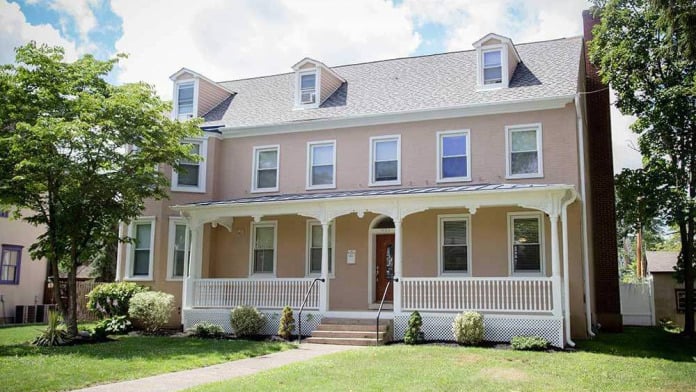
6 6 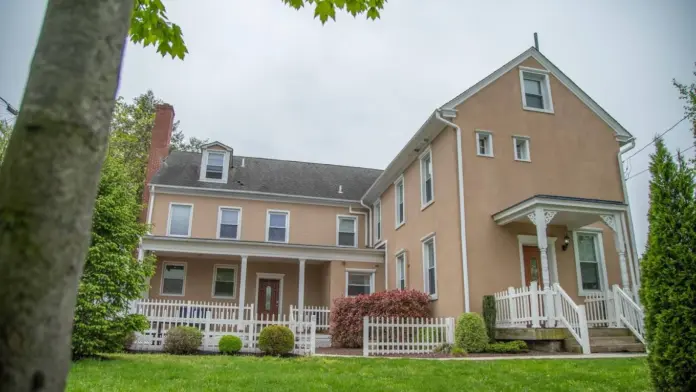
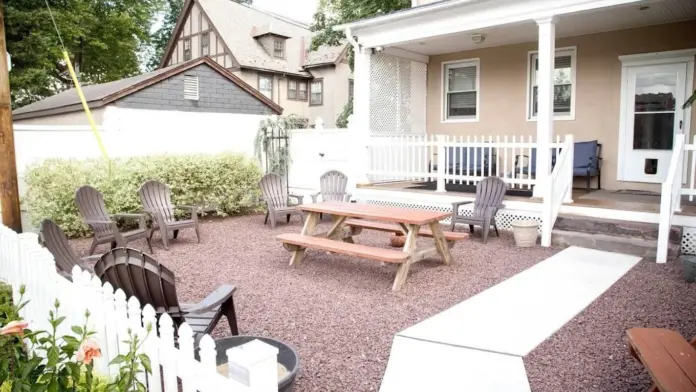
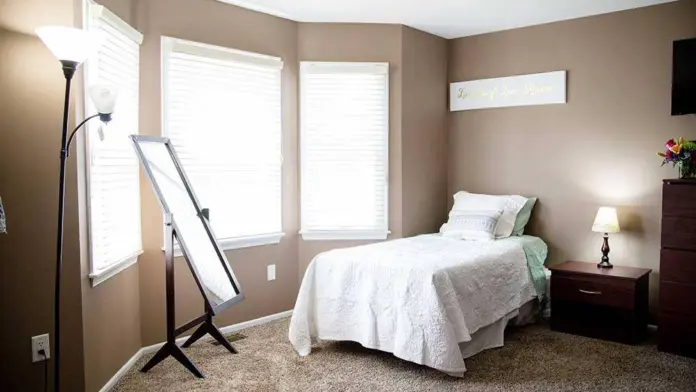

|
Watsonville, CA 10
Top 10 in Program For Women
Rehab Score
Our Rehab Score is designed to make it easier for you to find the best treatment centers. We combine overall ratings with recent feedback to create a score that reflects a center’s quality right now.
8.76 / 10 | Located in Watsonville, California, Elevate Addiction Services provides alcohol and drug rehab services to men and women suffering from addiction. Their levels of care include detox, inpatient treatment, and outpatient treatment. One of the best ranked Outpatient treatment centers in California, Elevate Addiction Services provides a wide continuum | Treatments Programs Payment Options | Elevate was an awesome experience. I learned a lot about myself and I now have the tools for long term sobriety
Colin Yan
6 days ago
Elevate has been a life changing experience. The staff is very professional and compassionate. The community of clients is very special and the morale is unlike anywhere else. I would highly highly recommend Elevate Addiction Services to anyone struggling with addiction. From detox to the very end of your stay you are well taken care of.
Travis Boe
6 days ago
I have been through other treatment facilities in the past; but Elevate has by far been the best experience I could’ve hoped for. Recovery isn’t just the ability to abstain from substances, but the capability of transforming from within. Not only has Elevate help me appreciate the things within me but everything around me as well. Thank you, Elevate for changing the trajectory of my life and my marriage!!
Michael Amodeo
1 month ago
| 
5 5 



|

The most effective treatment for substance use disorder recognizes that each individual comes to treatment with unique circumstances that impact their recovery journey. This includes gender. Women face physiological, social, psychological, economic and trauma based differences from men, marking a need for specialized rehab for women.
These unique challenges impact their recovery journey and, as such, should influence their substance abuse treatment programs. Gender specific care can be critical when facing addiction.
Key Facts About Women’s Addiction Treatment
Key Facts About Women’s Addiction Treatment
- Women’s addictions often are rooted in different challenges and traumas than men’s, so gender specific treatment can address these root causes.
- Women may use different substances than men and may experience addiction differently than men.
- Women’s rehab can span varying levels of care and often contains specialized programs for women with different needs and circumstances.
- Gender specific rehab can allow for more candid group therapy and create a space where a person feels safer and more understood.
What Are Women’s Drug Rehab Programs?
What Are Women’s Drug Rehab Programs?
Women’s drug rehab programs are gender specific alcohol and substance use disorder treatment programs that recognize women have unique recovery needs.
Unlike other programs where men and women are mixed and attend the same programs, women only programs provide evidence-based treatment that focuses on the unique biological, social, and cultural needs of women.
Women’s rehab reduces stigma and builds supportive community.
Gender-specific care improves outcomes by addressing women’s unique needs.
Definition and Scope of “Women Only” and “Women Focused” Rehab
Simply put, a women’s only rehab is an addiction treatment center or program that exclusively treats women.
Women often experience substance use in different ways compared to how men experience addiction, and women also tend to have different factors that complicate or contribute to their substance use like certain types of trauma, mental health conditions, and being a single or primary parent.
From intake through aftercare, gender informed care helps to provide support that’s specialized for women’s issues and it provides a space where women feel safer and more understood.
It’s important to note that there are some rehab centers that are exclusively for women, where only women are accepted as clients. There are other rehab centers that serve clients of any gender but have separate programs for women and programs for men.
Women in rehab need gender-specific care that addresses rapid addiction progression, intense withdrawal, and co-occurring trauma.
Effective programs provide holistic support—covering pregnancy, parenting, legal aid, housing, and social reintegration.
How Women’s Rehabs Differ from Mixed-Gender Treatment.
How Women’s Rehabs Differ from Mixed-Gender Treatment.
A women only rehab can provide treatment plans that use a gender based, trauma informed approach that focuses on treating the substance use disorder and trauma that contributes to addiction. The treatment can be communicated and conducted in a way that resonates with women and motivates women.
Often, these programs feature exclusively female staff which allows women to feel physically and psychologically safe. As well, peer to peer bonding is fostered in this type of environment because women can relate to women on sensitive topics, such as body image, sexual abuse, violence or parenting.
Quick Facts and Statistics on Women and Substance Use Disorders
According to one study, more than half of all women will be exposed to at least one trauma, with one in three women experiencing physical or sexual violence in their lifetime. These traumas are often the foundation for their struggle with substance use disorder, so addiction recovery needs to involve healing this trauma too.
As well, women face a faster telescoping progression in their addiction when compared to men. This means that the progression from the first exposure to a substance and the development of significant problems related to its use happens much faster. This is especially true with certain substances such as alcohol, opioids and cannabis.
Unmanaged mental health conditions are common contributing factors in substance use disorder. A KFF Women’s Health Survey found that half of women report that they need mental health care but only half of those women receive this care.
Why Women Need Gender Specific Addiction Treatment
Why Women Need Gender Specific Addiction Treatment
Every person’s journey through addiction and recovery is unique. Overall, however, there are distinct differences between women and men when it comes to addiction and treatment, and gender specific care is necessary to make sure women are treated in the most effective ways for their recovery.
Women face specific physiological, social and psychological challenges that can drive addiction in different ways than men.
Biological and Hormonal Differences
Women’s bodies and brain chemistries differ from men’s in ways that can affect addiction and recovery. For example:
- The higher amounts of estrogen in a woman’s body make drugs and alcohol absorb faster, which amplifies reward pathways so substance use may be more enjoyable.
- Certain phases in their lives, including pregnancy, postpartum and menopause, create heightened risks for relapse.
- Differences in body composition types can make dosing for MAT or psychotropic medications difficult, so women may be more likely to relapse because their symptoms aren’t being managed as well.
- Women are more prone to certain mental health conditions. For example, women who experience trauma are twice as likely to develop PTSD compared to men, according to the American Psychological Association.
Women process substances differently due to biological and hormonal factors, leading to stronger and longer-lasting effects.
These differences increase women’s risk for serious health issues and faster progression to addiction.
Social Psychological Factors
In addition to the physical differences, women have different societal experiences than men in ways that often contribute to addiction and recovery. For instance:
- Women face higher exposure to intimate partner violence, sexual assault, caregiving stress, wage gaps and poverty. All of these traumas and stressors can pull women toward substance use to cope.
- Women often delay seeking treatment due to stronger feelings of shame and stigma, as well as fear of losing their children because of their addiction.
- Being in a minority group when it comes to race, sexual orientation and socioeconomics can add stressors to anyone’s life, and these stressors are often more impactful for women in these groups. The added challenges from this intersectionality can compound addiction.
Due to these factors, a treatment program exclusively for women can be very beneficial and can address addiction in ways that are tailored to women.
Benefits of a Safe, Women’s Only Environment
Women-only rehabs approach addiction treatment in ways that are relevant to women but there are also distinctive advantages to getting treatment in an environment of only women. These include:
- Reduced risk of sexual harassment triggers
- Community modeling of healthy female relationships that focus on empowerment
- Spaces to openly discuss issues that primarily affect women like reproductive health, parenting guilt and body image
These factors make a women only environment a more productive place for many women to receive addiction treatment.
Most Common Substances Among Women
Most Common Substances Among Women
Not only do women have different contributing factors that affect their substance use but women often turn to different substances or experience substance use in different ways than men too. This is true for a number of substances from alcohol to opioids to stimulants to benzos.
Alcohol Use Disorder in Women
Alcohol impacts women in different ways than it does men. This is in part due to differences in body composition and hormonal fluctuations that can lead to higher blood alcohol levels and longer periods of intoxication.
Research indicates that women are more vulnerable to developing liver disease sooner than men and with less alcohol exposure. Alcohol related heart disease also develops sooner in women.
Women who consume even moderate amounts of alcohol have increased risks of developing breast cancer, osteoporosis and infertility. Mental health disorders such as anxiety and depression can also worsen for women who are struggling with alcohol use disorder.
Opioids and Prescription Painkillers
Over the past decade, opioid use disorder has increased in women according to the CDC. The Mayo Clinic indicates that this may be due in part to women being prescribed opioids more often than men, at higher doses and for longer periods. With this increased use comes a greater risk for overdose and addiction.
Stimulants (Meth, Cocaine and ADHD Medications)
Stimulants can impact women in very specific ways. Most of these substances can cause irregularities in menstrual cycles, leading to fertility issues and in pregnancy they may increase the risk of miscarriage, premature birth and low weight birth.
Women have a greater cardiovascular risk with stimulant use too due to heightened sensitivity to these types of substances. As well, their use can lead to malnutrition and excessive weight loss due to appetite suppression.
Benzodiazepines, Sleep Meds and Polysubstance Patterns.
Medications used to treat insomnia and anxiety are among the most commonly abused drugs by women.
According to the National Institutes of Health, women are more likely to misuse benzos as a coping mechanism, although men misuse the medications about as often as women for different reasons.
The same study found that women were more likely than men to be prescribed benzodiazepines, including long term prescriptions, which can present a risk for dependency and addiction.
Levels of Care in Women’s Rehab
Levels of Care in Women’s Rehab
Because each woman’s addiction is unique, some women need more immersive and comprehensive addiction treatment while others can recover through less intensive treatment structures. There are women’s rehabs at numerous levels of care to help women regardless of where they are in their journey.
Medically Supervised Detox for Women
Medically supervised detox is a process where your body is cleared of addictive substances under the close medical supervision of qualified staff.
They provide around the clock support, monitor for any complications and administer medications that are dose adjusted for a woman’s body composition, helping to make the process less uncomfortable.
For pregnant women, medically supervised detox is sometimes recommended before delivery to help circumvent some of the complications associated with neonatal withdrawal syndrome. In addition to the facility’s medical staff, an OB/GYN provider will be consulted on the safest ways to manage your symptoms.
Residential or Inpatient Rehab
Residential or inpatient programs provide 24/7 support and daily intensive therapy during the earliest stages of recovery. Individuals reside on a secure campus where they live among women and participate in individual and group therapy along with their peers.
Partial Hospitalization and Intensive Outpatient Programs
These outpatient programs provide flexibility that may be important for women who have work or family commitments but still need intensive treatment. They often have day or evening programs that typically require participation several days per week, but women live at home rather than staying overnight at the rehab center.
Traditional Outpatient Therapy and Virtual Therapy
Standard outpatient and virtual therapy provide flexibility to maintain daily responsibilities while still providing the counseling and support needed.
For some women, access to treatment may be difficult due to a lack of providers in their area or transportation issues. In these cases, online therapy sessions provide services that may otherwise be impossible to receive.
Sober Living and Transitional Housing
Sober living or transitional housing provides a bridge between inpatient treatment and daily life.
They offer continued professional and peer support in a substance free environment, which can be especially important in relapse prevention in the first days after completing a treatment program. These homes offer less supervision than you’d have in residential treatment but more than you’d have when living independently.
Evidenced Based Therapies Tailored To Women
Evidenced Based Therapies Tailored To Women
At any level of care in addiction treatment except for sober living homes, women will receive strategic therapy which uses techniques that are backed by evidence as being effective to treat addiction. Among these, the techniques a therapist uses will be based on the specific client and what she needs for recovery.
Trauma Informed CBT and DBT
These forms of cognitive behavioral therapy or CBT and dialectical behavior therapy or DBT are especially beneficial for women with a history of trauma because they understand that past traumas and abuses can cause a woman to develop maladaptive behaviors.
Through these behavioral therapy techniques, women are taught emotional regulation and healthy ways to resolve or cope with distress, which can be incredibly important in relapse prevention
EMDR and Somatic Therapies for PTSD
These techniques use bilateral stimulation (stimulating both sides of the body or brain) to reprocess traumatic memories.
They recognize that trauma is stored in both the body and the mind. Through these techniques, the memories are weakened, helping to calm the fight, flight or freeze responses that can be triggered by trauma and stress. This gives the individual the tools needed to have a healthier response in the future.
Medication Assisted Treatment (MAT)
MAT involves using specialized medications like buprenorphine or naltrexone to reduce cravings, prevent relapse, and support recovery while the patient participates in therapy to address the psychological and behavioral aspects of addiction.
The use of MAT has been shown to reduce withdrawal symptoms, curb cravings and reduce the risk of relapse for women with opioid addiction or alcohol addiction.
According to the American College of Obstetrics and Gynecology (ACOG), the use of MAT during pregnancy is the preferred course of treatment for women with opioid use disorder. The use of MAT is not a sign of weakness but is a proven practice that supports long term recovery.
Holistic and Lifestyle Modalities
In addition to individual and group therapy, the use of holistic and lifestyle modalities during treatment provides added support for the mind, body and spirit.
Through techniques such as yoga, meditation, massage, and acupuncture, women can find improved mindfulness that opens them to healthier ways of life and can develop healthier coping mechanisms. All of this helps to support you on your recovery journey.
Specialized Services Often Needed for Women in Rehab
Specialized Services Often Needed for Women in Rehab
Another notable benefit of women-only rehabs is that they’re better able to provide certain services beyond therapy that women may need while they recover. These are some of the advanced services that are common and helpful in women’s rehabs.
Perinatal and Prenatal Addiction Care
Pregnant women benefit greatly from medically supervised detox and continued intensive addiction treatment. Through coordinated care between the OB/GYN provider and the addictions team, women receive safe and supportive services with her and the baby in mind.
Parenting Classes and Family Therapy
Parenting classes help women develop stronger bonds with their children by breaking intergenerational trauma cycles that can lead to dysfunctional parenting skills, including inappropriate discipline or lack of communication. Family therapy can improve relationships including positive co-parenting that can be difficult for many.
Dual Diagnosis for Anxiety, Depression and Eating Disorders
According to the American Psychological Association, women with SUD are disproportionately more likely than men with SUD to have co-occurring disorders.
For this reason, proper care for these conditions alongside addiction treatment is critical for a future in recovery. Specialized therapy can give them the tools to develop healthier coping skills and make changes that support overall well being.
Gynecological and Reproductive Health Support
Proper gynecological and reproductive health support is an important component of a comprehensive treatment plan.
Women only programs can address the unique health needs of women, including providing disease screening through pap smears or STI testing, contraception planning and menstrual health support. This whole body approach to care is another component of successful addiction treatment.
Programs for Women of Color, LGBTQ+ Women and Veterans
In addition to recognizing that women face unique addiction challenges, these are compounded for women in marginalized communities.
Programs that provide culturally competent care that address the trauma of continued exposure to racism and discrimination can help to build the foundation for a future in recovery.
For female vets, the issue of military sexual trauma is addressed through very specialized programs that understand the shame and pain associated with this type of trauma in a safe and supportive environment.
Daily Life in a Women’s Rehab Program
Daily Life in a Women’s Rehab Program
If you’re a woman considering gender specific rehab, what can you expect? Each treatment center will have their own processes and atmosphere but there are certain elements you can prepare for.
A Typical Schedule
While every program is different, many inpatient programs offer structured support and routine which consists of sessions designed to keep you busy and develop personal growth at the same time.
Your mornings, for example, could look like this:
- Wake up and perform your morning hygiene
- Breakfast
- Morning meditation
- Group therapy sessions that focus on relapse prevention and coping skill development
- Individual counseling
Your afternoons could include:
- Lunch
- Life skills or addiction education
- Exercise or wellness activities such as yoga, art therapy or fitness
- Free time where you can rest or engage in personal hobbies
This might be followed by an evening that includes:
- Dinner
- 12 step or peer support group
- Evening reflection or mindfulness activity
- Sleep
Community Culture and Alumni Sisterhood
Many treatment programs encourage peer to peer relationships that offer support even after you complete treatment. Often, they will have alumni events that encourage long term engagement that helps to prevent relapse and offer continued support and community at the same time.
Privacy, Safety and Confidentiality Standards
Women who have faced past trauma, such as sexual or domestic violence, often have issues with feeling unsafe. For these reasons, women’s programs offer safe and secure facilities that ensure protection during treatment.
As well, all people working in medical and mental healthcare are held to HIPAA compliance, which ensures that your information, whether it be on a medical record or something that was said in sessions, will be kept confidential.
Aftercare and Relapse Prevention
Aftercare and Relapse Prevention
Addiction recovery needs lifelong maintenance, and rehabs recognize that this is key in helping the women they serve to enjoy a healthy life after treatment. That’s why these rehabs have aftercare and relapse prevention services.
Continuing Care Plans and Step Down Levels
Even though you have completed a treatment program, the journey does not stop there. In fact, for some people, going home or graduating from a program can be extremely stressful.
Because the risk of relapse is highest immediately after leaving a program, aftercare provides continued support and check-ins that prevent isolation and encourage engagement with people who understand how difficult this can be. This may be in person or through telehealth appointments or recovery apps.
Women Focused Support Groups
Support groups that understand the unique circumstances and challenges that women face are an important tool for long term recovery.
Groups such as Women for Sobriety, SheRecovers global meetups, or peer led circles that address issues like motherhood, menopause or dating can provide support and are also a place to find understanding among other women in recovery.
Building a Recovery Friendly Lifestyle
In addition to support groups, finding a daily routine that promotes physical and mental health is another step towards long term recovery.
This includes exercising, volunteering or creative outlets such as painting or gardening. Many women’s rehabs will help you explore these types of healthy hobbies, routines and opportunities while you’re in treatment so you can continue them after your program.
How to Choose the Right Women’s Drug Rehab Center
How to Choose the Right Women’s Drug Rehab Center
Among all of the addiction treatment centers that specialize in treatment for women, how do you know which one is the right fit for you? There are several factors to consider while weighing your options.
Accreditation, Licensing and Evidence Based Credentials
No two treatment centers are alike and for this reason, it is important to make sure that they follow standards set forth by organizations such as CARF or the Joint Commission. These accreditations aren’t required for a rehab to operate but they do let you know that the program and practitioners provide the highest quality of care.
Staff Qualifications and Female Clinical Leadership
All addiction treatment programs should have board certified addiction medicine physicians and certified trauma trained addiction therapists and clinicians.
This is another step toward ensuring that you are receiving the best evidence based treatment practices available. Female leadership also helps to ensure that the unique challenges women face in addiction are recognized and addressed.
Amenities, Location and Cultural Fit Questions
Not only is it important that the program is accredited and staff are qualified but the safety and location of the rehab are also important.
Before starting any program, look for things that are important to you, such as private vs shared rooms, faith based programming, holistic treatment options, dietary accommodations or fitness facilities. You may be more likely to stick with a treatment program if the treatment center is meeting your needs in these other areas.
Red Flags Checklist
Just as you want to look for rehabs that have positive qualities, you should also keep an eye out for red flags that a treatment center might not be a good fit.
Some of these red flags could include:
- Offering promises of a cure or making claims that seem too good to be true
- A lack of individualized treatment plans
- Hidden expenses
- High staff turnover
- Negative actions against the facility by regulators like licensing boards or the state
The internet is a great place to find this information. Read past client reviews, explore the rehab’s website, and contact the state board of health or the local Better Business Bureau to check for anything of concern.
Frequently Asked Questions About Rehab for Women
Frequently Asked Questions About Rehab for Women
Some rehab facilities will allow mothers to keep babies or young children with them during treatment. Contact the facility to inquire about their policies or talk to a local social services agency that can direct you toward programs that have this option.
The essentials you should pack include:
-Comfortable clothing
-Alcohol free toiletries and hygiene products
-Photo ID and insurance card
-Prescription medications in the original bottles
-A small amount of cash for vending machines or shopping
-A journal or notebook
-Something to read
Some facilities restrict the use of cell phones, tablets or computers during your stay. Ask the facility about its policies before arriving.
Many women’s rehabs do support clients in the LGBTQ+ community but this will depend on the facility. You can ask about their policies or if they have specialized groups and support for you.
Most inpatient programs require that you remain at the facility for the duration of the program so you wouldn’t be able to continue working or going to school. However, intensive outpatient or partial hospitalization programs offer flexible yet comprehensive care that can meet these needs.
Find a Drug Rehab for Women Program Near You
Find a Drug Rehab for Women Program Near You
Rehab.com offers a directory of treatment centers that can be filtered by location, level of care, insurance, amenities or special programs.
This is a great tool for not only locating a treatment program but ensuring that your specific needs will be met. Being away from home is hard enough; finding the right rehab program is a critical step in your recovery journey.
Not sure where to start? Pick a treatment facility that looks right for you, give them a call and talk to a client services representative about their treatment options, availability, and whether your insurance covers their services. There is hope in healing. A brighter future could be just a call away!
Drug Rehab for Women Near You
Finding facilities near you…

